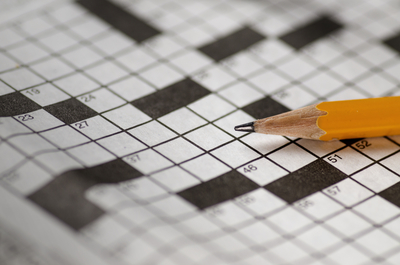Memory loss in seniors: a prevalent issue
by Garden of PalmsMemory loss in seniors: a prevalent issue
With growing age, there can be many issues and problems associated with our senior loved ones. Aging is something that is inevitable, and in many cases, so are the diseases that come with it. It’s true that we can work to prevent them and avoid them to some extent, but memory loss is a very complicated issue and currently a large portion of people over 65 years old in the United States will experience some form of memory loss in their lifetime. The most common and earliest experienced congnitive impairment issue in the elderly is memory loss. They keep forgetting things easily; they won’t remember common things like if they put the car keys on the table just five minutes ago. How to start noticing symptoms, or when to start treatment, these are some of the questions whose answers you will find in this article.
Memory loss and aging
Memory loss is a typical complication. As they grow, they encounter physiological changes that can bring about glitches in the brain. It takes more time to learn and review data. They’re not as snappy as they used to be. Some seniors may attribute this mild impairment for genuine memory misfortune.
If you go into further detail, you will see that the branches of memory loss are connected with Alzheimer’s disease, dementia, and other similar cognitive impairment issues. However, specifically speaking of dementia, it is not a particular illness. It's a general term that depicts an extensive variety of side effects or symptoms connected with a decrease in memory or other deduction aptitudes sufficiently extreme to diminish a man's capacity to perform regular exercises.

Symptoms of Alzheimer’s disease or dementia
- Memory loss.
- Struggling to solve problems.
- Having difficulty in running out routine errands, like forgetting the rules of a favorite game, or forgetting how to make tea.
- Confusing the names of people is very common, and people with alzheimer’s may recite several different names to address a person before finally calling out their right name.
- Confusion with the time and place.
- Struggling with visual clarity, maybe confusing two colors like blue and purple, or being unable to measure distance between two entities.
- Speech issues, they might find it hard to pronounce easy mundane words that they were fluent in speaking previously.
- Writing problems, maybe they are again and again losing grip on the pen or simply struggle to write down words.
- Lack of reversal ability. This is basically that the elderly get to one point and have no way to go back. Like keeping something valuable in the closet and then forgetting where they put it.
- Poor judgment, or simply lack of concentration. They might not be able to bargain effectively with a fruit vendor, or mistakenly hand him out more money than he asked for.
- Being anti-social. A person who previously found joy in the existence of others suddenly quits being social, or stops doing the usual activities that they always used to do like reading the newspaper every morning.
- Mood swings. Usually these people have bipolar mood swings like not enjoying the little things anymore, or they might even be frustrated and angry on the slightest of issues.

How to improve your memory:
- Mind engaging activities are honestly one of the best ways to keep you mentally active. Try playing crossword puzzles, or Sudoku, or such games that really involve intensive thinking. This will help your brain to engage it in activities that are helpful for memory.
- Try to socialize with people, or even try to hang out with your family. This will generally put you in a happy mood and distracts your brain from the usual stress that might be the reason you keep forgetting things. Identify sociable activities that you enjoy are engage in those activities several times per week.
- Organize yourself by keeping good track of your whereabouts. If you keep forgetting things, keep a notepad with you every time and note down important tasks there, like your usual grocery list or the name and contact number of your usual taxi driver. Writing things down manually and organizing yourself will help you to avoid forgetting things.
- A good routine of sleep and a healthy diet is very important. Try eating well and on time and try to get enough sleep to keep you fresh and active all day.
- Mild exercise also helps your brain to function well, try going out for a walk in the evening or simply do easy exercise to help you stay fit and healthy.
- For many conditions, medicinal help is important, and some elderly people completely rely on supplements that are a treatment for memory loss. Of course, herbal and natural supplements are an option as well, but you’ll need to consult your doctor before deciding on any kind of medication or herbal treatments for your own personal care.

When to seek for help for memory loss
If you're stressed over your memory loss, particularly if it affects your ability to finish your typical day by day exercises, consult with your specialist. They will probably do a physical exam, and check your memory and critical thinking aptitudes. In some cases, other tests are required as well to accurately assess your cognitive abilities. When you experience memory lapses, you should consult with your physician as soon as possible. Regardless of the possibility that you're not showing all the fundamental side effects to demonstrate dementia, now might be an appropriate time to find a way to prevent a little issue from turning into a bigger one.
Memory care programs are probably the best option for you to receive personal attention and to help you cure the problem naturally. It is important that you keep your doctor in the loop, so make sure to visit them when the memory loss issue becomes more serious or worsens since your last examination. Memory care programs, particularly as part of a larger assisted living program, help to battle this problem and make you mentally active and healthy.
